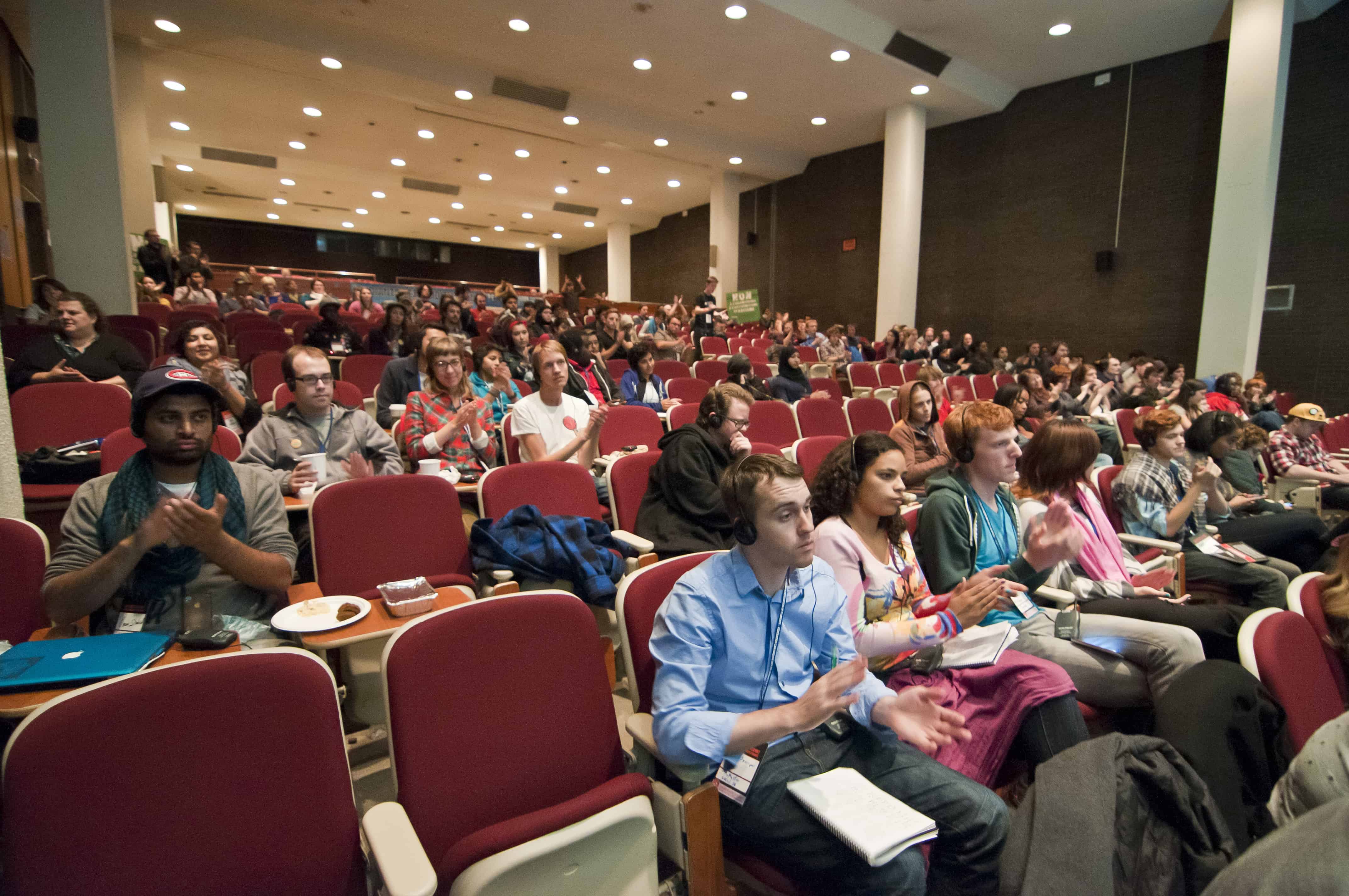This weekend, OISE played host to a student activist assembly convened by the Canadian Federation of Students Ontario (CFS-O). Over 450 students from universities and colleges across the province registered for the event, which sought to foster conversation about topics ranging from the state of education to poverty and environmental issues.
“The activist assembly brings together students from across the province to participate in both information- and skills-based workshops,” said Sarah Jane King, chairperson of the CFS-O.
The assembly was attended by students from Toronto-area schools including York, Ryerson, and U of T, as well as Guelph, Lakehead, Laurentian, Carleton, and the University of Ottawa. College students were also in attendance from across the province.
Attendants participated in workshops ranging from “Education Inc.: The Rise of Corporate Interest on Campus” to “Building a Radical Disability Movement” to “Who’s Turning the Screws? Understanding Who’s Who in Post-Secondary Education.”
Campus media outlets were not permitted to attend the sessions. “We ask media not to be recording the sessions or taking notes, simply because we wanted to create space where everyone felt comfortable participating fully, where people can say whatever they wanted without fear of seeing something in the newspaper that they didn’t want recorded,” explained King.
Corey Scott, vice-president, internal and services at University of Toronto Students‘ Union, explained, “One of the strengths of having conversations with people from the different universities and colleges is that you get to hear about some of the things that have happened on their campus and you see it translated back onto your own campus.
“By having these conversations, we find out about these things in advance and we prepare ourselves as best as possible.”
Scott pointed to flat fees, a system already in place at U of T (in spite of intensive lobbying efforts by student government), now under consideration at other universities such as Carleton.
Scott also discussed the value of learning from the recent experience at Lakehead University, where, as Scott explains, the governing council “disallowed students from voting on tuition fee increases, because they said that it was a conflict of interest. We heard about how they challenged that, how they filed an injunction, how they were able to overrule that decision, so that students could eventually vote.”
Scott also explained that the assembly was a chance not only to prepare against moves from university administrators, but also from other student groups.
“There are anti-choice groups that are travelling around the country, and are talking about limiting women’s rights to choose,” said Scott. “We get to hear about what is happening on different campuses who have those organizations popping up and doing a lot of really sexist work on campus, and we’re able to think about how to ensure that we are creating safe spaces.”
King explained that the assembly was very timely. “We’re at an important time right now, because the government is trying to make a lot of really significant changes to our education system,” she said. “It’s extremely important to bring people together to talk about these issues and to make a plan for how we move forward and to really find out how we should be addressing the problems we face as students right now.”
Overall, the students in attendance had positive things to say about their experience.
“It’s been pretty cool to learn about what’s going on at Carleton, what’s going on at UTM, what’s going on at Scarborough and other universities across Ontario,” said Yolen Bollo-Kamara, vice-president, campus life for the UTSU.
The assembly also had a panel of student activists from around the world in attendance; on Saturday Ana Garcia from Spain, Panagiotis Louvros from Greece, Rodrigo Echecopar from Chile and Marianne Brenton Fontaine from Quebec gave keynote speeches in which they shared their stories and their countries’ experiences with student activism. The panelists also spoke about the differences and similarities between their struggles and the struggles that Ontario students are facing.
“All of the things we talk about here are interconnected,” reflected David Eaton, an international development major from the University of Ottawa. “One person’s struggle or movement can be directly related to someone else’s. You may not think that they’re related but in fact the struggles that we face are not that different.”


